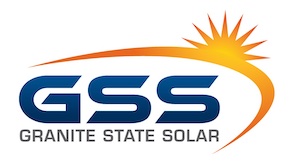Often, the initial expense of a solar installation can deter people from embracing this eco-friendly solution. Thankfully, there are numerous grants and incentives available to reduce the financial burden of going solar, which can help expedite its adoption as a renewable source of energy. This blog post will explore the types of funding made available for those considering solar for their town, business, or home, making it more accessible for all to harness the power of sunlight!
Federal Grants: The U.S. Department of Energy offers numerous grants to promote the adoption of solar energy across the nation. Within the DOE’s Office of Energy Efficiency and Renewable Energy (EERE) are multiple offices supporting the goal of accelerating America’s shift to net-zero greenhouse gas emissions by 2050, ensuring that the clean energy economy benefits all Americans.
For example, the Solar Energy Technologies Office (SETO), provides funding opportunities for solar energy research and development projects. For a comprehensive list of current and past federal funding opportunities for solar and other clean energy initiatives, the DOE’s website is a valuable resource.
To be eligible for a grant, individuals need to navigate a multi-step application process that can span several months. This process involves submitting a concept paper, finalizing project details, and other essential steps, varying across different programs.
Beyond the DOE, other government departments also support renewable energy initiatives. For instance, the Department of Agriculture offers grants to small businesses in rural areas through the Renewable Energy for America Program (REAP). An example is Micro Mama’s, a fermented vegetable business in rural New Hampshire that our team assisted in installing a solar array. By securing funds from the DOA for their solar project, Micro Mama’s enhanced the sustainability of their food production operations, while significantly reducing their business operational costs.
State Grants: Depending on your location within the country, you may qualify for state-level funding for your renewable energy initiative. In New Hampshire, the state government presents the Low-Moderate Income Solar Grant Program.
The Low-Moderate Income Solar Grant Program in New Hampshire works to make solar technology more accessible to individuals with lower to moderate incomes. By providing economic subsidies for solar panel installations on residential properties, the program helps decrease energy costs for participants. This effort aligns with the state’s sustainability goals and environmental protection initiatives by encouraging wider use of green energy. The approach not only levels the field for households facing financial challenges but also drives New Hampshire towards a greener and fairer energy future.
Funding from Corporations and Private Investors: Apart from governmental and nonprofit sources, corporate entities and private investors might fund solar energy projects through grants, sponsorships, or partnerships. These opportunities are beneficial for businesses aiming to decrease their carbon footprint, enhance sustainability efforts, or show corporate social responsibility. Crowdfunding platforms provide another way for individuals and organizations to raise funds for solar projects through community support.
In summary, a variety of grants and incentives are available to promote the adoption of solar energy, making it more accessible and affordable for individuals, businesses, and communities. From federal tax credits to state-level incentives, local programs, nonprofit grants, and private funding opportunities, a diverse range of resources can help offset solar installation costs. By leveraging these grants, we can harness solar energy to create a cleaner, brighter future for generations to come!
Want to get in touch to learn more?



